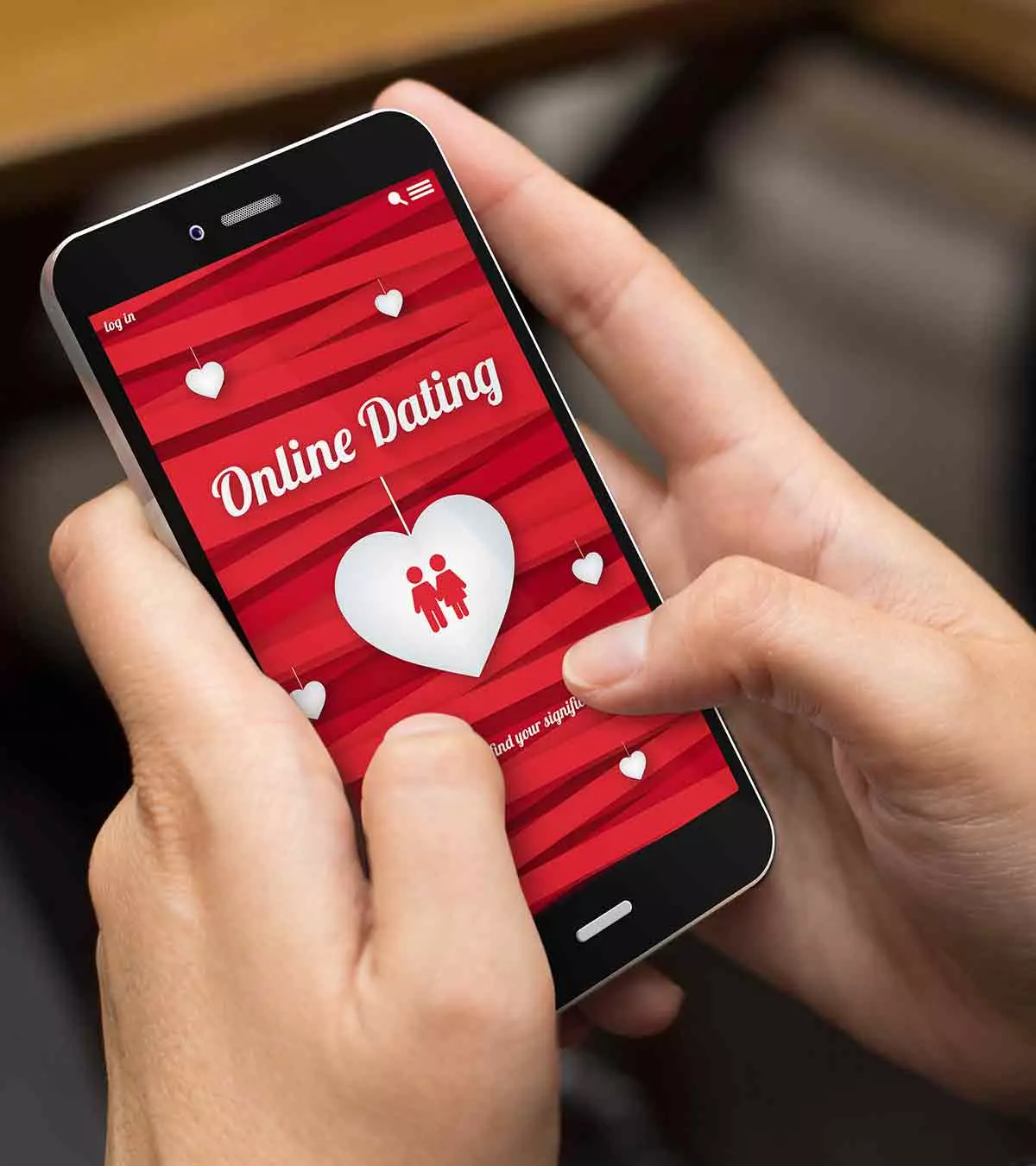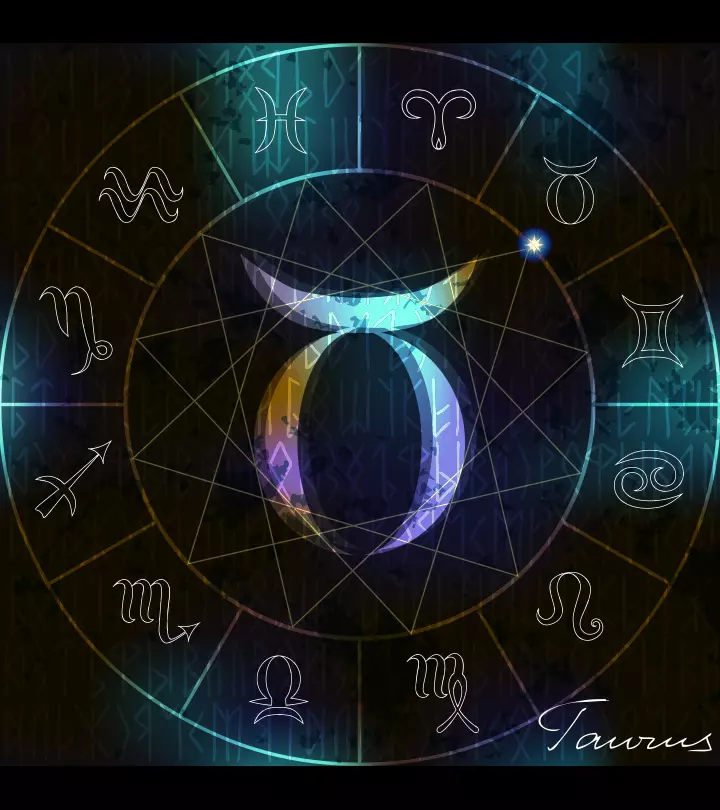
Image: Shutterstock
A breakup often pushes a person into misery. They go through a flurry of emotions and feel a void in their life. A rebound relationship usually happens after a breakup when a person decides to be with another to overcome the pain caused by the separation. So when a person walks into your life and gives you the attention and care you need, you form an attachment and might mistake it for love and rush into a relationship with them. Keep reading this post as we talk about a rebound relationship, its signs, and why you shouldn’t be in it.
Key Pointers
- Rebound relationships begin shortly after a breakup, often as a way to distract from the previous relationship.
- Typically, these relationships lack commitment and emotional connection, as they are viewed as a way to avoid loneliness and anger.
- They can result in additional emotional pain and prolong the healing process.
- It’s essential to give yourself time to heal before attempting any short-cuts to cope with the situation.
What Is A Rebound Relationship?
A rebound relationship is one that starts immediately after the breakup of a long-term relationship or marriage, even before you’ve had closure. It is often a temporary and emotionally-motivated relationship that lacks the deep connection and stability characteristic of a long-term relationship. It is a distraction or coping mechanism to get over the pain of a previous relationship and a disguised attempt to move on in life.
But, in reality, it could just be an excuse to escape and transition from pain and loneliness. As the new relationship numbs the pain, it is easy to invest time in it rather than deal with the pain itself. In other words, a rebound relationship is a quick fix to get over a breakup.
Rebounding can feel like love for the simple reason that the people involved in it want to be in love. They are used to the secure feeling of love, and they just want that feeling to continue, albeit with a different person. They convince themselves that they are in love when the truth is that they are missing the safety and comfort of the previous relationship. So, how do you know you are in a rebound relationship?
 Do remember
Do rememberSigns Of A Rebound Relationship
People involved in a rebound relationship do not give themselves enough time to heal from the last relationship and move on too fast. While it’s natural to feel loved and secured in a relationship, people miss the glaring warning signs in a rebound relationship.
These signs will help you know if you are in that situation:
- Get into a new relationship quickly. It’s been only a few weeks since you broke up, and you are already in a new relationship. Finding someone and connecting to that person cannot happen that fast. The longer the wait, the fewer the chances of having a rebound effect in a relationship. Every person has their own time frame to process breakups and move on into a new relationship.
- Ready to date anyone. You enter into a new relationship knowing that the opposite person is not the ‘real’ person you are looking for. But you get attracted to them as you get the attention and care. You like the attention and not the person.

Image: IStock
- Love comes easily. You feel connected to your new partner, you are crazily in love only after a couple of dates, and commit yourself even before you know your partner. That’s very typical of rebounders.
- Relationship moves fast and slow at the same time. Rebound partners move exceptionally fast and slow at the same time. They may enter the relationship in no time but there might be a lack of connection.
- Rub the relationship on the ex’s face. You might want to show off your new partner in front of your ex hoping to notice signs your ex still has feelings for you. You go out of your way to ensure that the ex knows how happy you are in the new relationship.
- Need partner when lonely and neglect them when happy. The new relationship is a means to escape the heartache from their previous relationship. So, you need the new partner to make up for your loneliness and conveniently ignore them when you are happy.
- Sex is high. Rebounders enjoy sex but don’t know where their relationship is heading. They frequently have sex to distract themselves, or as a means to get over the breakup.

Image: IStock
- Hardly remember how you got over the previous relationship. Moving on takes time, it cannot be rushed. It can take from months to years. But if you do it in days, then it might be something to think about.
- Show off as a long-term couple. Despite dating for just a few weeks, you and your partner behave as if you have known each other for a long time.
- Ex-monster syndrome. You haven’t gotten over your ex; in fact, you haven’t allowed yourself to get over. If you display the following signs, then you likely have the rebound syndrome.
- Vent out bitterness about your ex and use your new partner as a sounding board to relieve pain.
- Talk a lot about your ex, and carry feelings for them secretly.
- Spend time wondering “will he come back?”
- Chatting with your ex on social media.
- Hang out with your ex’s friends.
There is nothing wrong with having a new person in our life, and starting life afresh. But before you move into a new relationship, make sure you have completely severed your ties with your ex.
 Point to consider
Point to considerStages Of A Rebound Relationship
Like a regular relationship, a rebound relationship goes through several stages. Understanding these stages and then introspecting and healing is important to avoid repeating the same pattern in future relationships. Let’s see what they are:
Stage 1 – Finding the one
The reasons for your last breakup set the premise for the new relationship. You are likely to choose a partner who is unlike your ex and thus feel vindicated.
The fact that your new partner is different from your ex might make you think that you have found the right partner. This presumption might be too weak to sustain your relationship in the long run.
Stage 2 – The honeymoon phase
You have found the ‘right one,’ and everything is going well. You feel things are great and just perfect as your new partner pays you attention and you cozy up to them.
This stage feels natural, but you do not know where this is taking you to. You keep comparing your ex with the new partner and you feel this is right for you. There will be moments when you tend to doubt your partner, but you sweep such doubts under the carpet. These tiny differences might soon blow up into a big issue.
Stage 3 – The breakdown stage
The little differences and misunderstandings you had in the honeymoon phase start flaring up, and you find your relationship breaking down. You fight but you don’t want to let go of the relationship because you don’t want to be left alone again. Instead of opening up about your feelings, you suppress them, and that explodes sooner than later.
Stage 4 – The explosion stage
All your suppressed feelings pile up and explode. The reasons for your last breakup seem to suit your new relationship as well.
The bad part is your new partner doesn’t know the reason for your behavior because they have come to believe that all is well with you both.
Stage 5 – The end stage
You realize that the solution to a breakup is not a new relationship. You understand that to have a new relationship you need to be open in your communication and expect the same from your partner.
You may give another chance to the relationship if your new partner is willing to accommodate. And if you have ended the relationship, you will have the time to introspect this time around.
 Quick tip
Quick tipWhy Are Rebounds Bad?
Breakups are hard but getting into a rebound love relationship just to get back at your ex or escape your loneliness is not a solution. Here’s why rebounds are bad for you:
- You are emotionally vulnerable: No matter how strong you are, a break-up could make you emotionally vulnerable. You may also have unresolved feelings from your previous relationship. This creates the perfect opportunity for others to enter your life and take advantage of your vulnerability.
- You are confused: Breakups are emotionally overwhelming. And when you get into a rebound phase, you are not yet ready for a real relationship. You may like your new partner, but you still haven’t gotten over your ex. It will only leave you confused and clueless about your real feelings for your new partner.

Image: Shutterstock
- You miss out on introspection: Every experience in life teaches you a lesson. When a relationship fails, you will have to take time to reflect on what went wrong and why. If you dive into a new relationship straight after the breakup, you will miss out on the window to introspect.
- Unfair to the new partner: A majority of people, who get into a rebound period, want to make their ex jealous or get out of loneliness. Imagine if you were being used by a rebounder like that. You’d feel terrible, right? So, why would you want to do that to someone else? It’s unfair to the new partner, who is serious or committed in the relationship.
- Reconciliation may not be possible: Sometimes you might part with your partner over petty things. Later, you might regret it and want to go back to them. However, if you get into a rebound, you lose that chance of reconciliation with your ex.
- The attraction for the new partner is short-lived: You feel attracted to the new partner, but in reality, it could just be your need for support and sympathy. Such attraction doesn’t last long.
- You become dependent: Getting into a rebound makes you constantly dependent on somebody else for your happiness. Being single for a while helps you gain self-confidence and enables you to rediscover your strength.
With such complications associated with the new relationship, it could be difficult to last long.
 Do remember
Do rememberHow Long Do Rebound Relationships Last?
It is not possible to predict the life of your rebound relationship. You might realize your mistake within a week into the relationship or take a few months to understand you do not want it anymore.
However, what’s predictable is the various stages that your relationship could go through. Marcella Purnama, a blogger, shares her experience of how short and interesting her first rebound relationship was. She says, “The man in question had been my best friend since junior high – right up until he got together with this girl in senior high. Our friendship had crumbled.But when he broke up with his girlfriend and prom night drew closer, we found ourselves reconciling at the goodbye party. To my utter disbelief, he then left me a bouquet of roses, complete with a love poem, in front of my house on prom night shortly after – gifts I didn’t discover until the next morning. While I didn’t really expect the roses or the poems, I knew something was up.
“I’d heard way too many stories of boys acting strangely after a breakup to take this as just a sweet gesture. A few days later, he left on his end-of-school trip, leaving me alone with my confusion. But it didn’t take long for the gossip mill and the miracle of technology to bring me the news: he’d gotten back together with his girlfriend.”
Stating that she had learned an important lesson from this rebound relationship, Purnama advises against indulging in such relationships with one’s friends post their break-up. However, she adds, “But as far as first rebound experiences go, I’d say I got off easy. I mean I didn’t even become emotionally attached to him or anything (i).”
What Happens When A Rebound Relationship Fails?
A rebound relationship does not have a strong foundation; hence when it breaks, you are less likely to be emotionally affected. And if such a relationship was purely physical, then it may even become easier to forget the person involved. However, the failure of a rebound relationship may also trigger the following emotions.
- Resurgence of the feelings for your ex-partner (the one before the rebound).
- Regret for the rebound relationship without meaning or significance in your life.
- The feeling of dejection that yet another relationship failed.
- Resentment for the ex-partner because of whom you entered a rebound relationship.
- Contentment that a lesson was learned and next time you may not be hasty to get into a relationship.
Why Rebound Relationships Fail?
The most prominent reason is the haste with which you get into a new relationship. Here are a few other reasons why rebound relationships fail:
- Healing from a breakup takes time, it cannot happen overnight. Rebounders carry the emotional baggage to their new relationship, which leads to conflicts.
- They are in the relationship for wrong reasons — to make their ex jealous, to have sex, or to avoid being lonely. Any relationship that lacks love and trust is bound to fail.
- Moving from one relationship to the other without learning from the previous one will not help them to be successful.
- A rebound relationship is not based on true love. And any relationship that is based on false beliefs cannot sustain in the long run.

Image: Shutterstock
- The expectations are too high in a rebound relationship; the rebounders expect the new person to solve all their problems, make them feel complete, and forget the pain of the breakup. This puts a lot of pressure on the partner.
- A rebound relationship is a means of distraction. Once that purpose is served, the relationship wears off.
Note that not all the new relationships (after a breakup) are rebound. You might, in all likeliness, find the right partner. There is every chance that you have taken the right decision by choosing your new partner.
Also, your relationship will have a long life if you make some conscious efforts.
How Can You Make A New Relationship Last Long?
Here are a few things you need to know:
- Decide with a balanced mind. Don’t get swept away by your emotions; do not become desperate to have a new person in your life. A good start is to get to know people and make friends. Take your time to assess your prospective partner, write down what you like and dislike about them, weigh your options, and make a practical decision.
- Heal yourself after the breakup. When you are in pain you can’t make a wise decision. Your pain will force you to be hasty and will eventually bring more pain than happiness. Give yourself time to recoup from the breakup, spend time with friends and family, take a break from work, and go on a holiday. You may also consider taking professional help or advice to navigate your feelings. This will give you breathing space for recovery and introspection.

Image: Shutterstock
- Realize that you are in a rebound relationship. If you have already entered into a new relationship, and the chink began showing, then don’t be in a hurry to come out of it. Give it some time, see what you like in it and what you do not appreciate. Try to change the things that you do not like. Who knows, your efforts might fructify and the rebound relationship might actually become a long one to stay.
Remember, your new relationship need not be a rebound relationship, especially when you have moved on even before the official breakup.
Frequently Asked Questions
1. Is a rebound relationship healthy?
A rebound relationship may help boost a person’s confidence after a breakup. In addition, a study revealed that people who entered a rebound relationship after a breakup might have benefits over remaining single, and this relationship aids them in managing their emotions better (1).
2. What is the success rate of rebound relationships?
A group study showed that, in most cases, a rebound relationship lasted for about two to three months (1). However, this does not hold true for all relationships as some may be short-lived, while others could last longer
3. Can a rebound make me miss my ex more?
Missing an ex is subjective and different for everyone. You will likely compare your new companion to your ex when you enter a rebound relationship without fully letting go of your past. And if they don’t meet your expectations, you’ll miss your ex even more. If your rebound works well for you, you may not miss your ex much.
4. How do I break the cycle of rebound relationships?
Consciously take time to heal and reflect on the reasons behind seeking rebounds. Convince yourself to focus on personal growth and self-improvement. Be mindful of repetitive behavior that makes you seek a new relationship immediately after a breakup. Divert your mind and get involved in a new activity that will keep you occupied.
5. Should I avoid dating someone who is on the rebound?
Yes, if possible. Dating after a breakup can be tricky because of unresolved feelings from the previous relationship. Rebound relationships tend to be emotionally unstable. Before you enter into a relationship with such a person, examine whether they have had enough time to recover and process their emotions. Such issues should be approached with caution and open conversation.
6. Are there certain personality types that are more prone to rebound after a breakup?
No study or research explains which personality types are more prone to rebounding. However, individuals afraid of being alone or seeking recognition from others are more likely to seek a rebound relationship. Individuals with low self-esteem are also more inclined to seek a rebound relationship.
A rebound relationship is when a person chooses to be in a relationship to overcome the pain of separation from the previous relationship. This is when the person does not have enough time to recover from the breakup and wants to enjoy the warmth of a relationship. They may fall in love too quickly and often need a partner when lonely and do not pay attention to you when happy. Although rebound relationships help a person forget the pain, casual commitments can do more harm than good in the long run.
Infographic: Why Rebound Relationships Fail?
Dealing with a relationship ending can be hard on some people. In order to deal with the hurt and move on from their ex in haste, people often jump into a rebound relationship, thinking that they might get over the past quickly. But in the following infographic, we highlight the reasons why that is not a good idea and why it won’t work, in addition to the reasons already mentioned beforehand. Illustration: Momjunction Design Team
Do you have anything to say about rebound relationships? Leave your comments below.
Illustration: Signs Of A Rebound Relationship To Watch Out For

Image: Dall·E/MomJunction Design Team
Are you in a rebound relationship? Learn about the 4 stages of a rebound relationship for the dumper in this video!
Personal Experience: Source
MomJunction articles include first-hand experiences to provide you with better insights through real-life narratives. Here are the sources of personal accounts referenced in this article.
i. Rebound: Only this isn’t basketball, it’s relationships.https://marcellapurnama.wordpress.com/tag/rebound-relationship/
References
- Claudia C. Brumbaugh and R. Chris Fraley; Too fast, too soon? An empirical investigation into rebound relationships.
https://journals.sagepub.com/doi/pdf/10.1177/0265407514525086
Community Experiences
Join the conversation and become a part of our nurturing community! Share your stories, experiences, and insights to connect with fellow parents.
Read full bio of Dr. Carlos Juan Carmona-Goyena
Read full bio of Kalpana M
Read full bio of Shikha Thakur
Read full bio of Benidamika J Latam
















